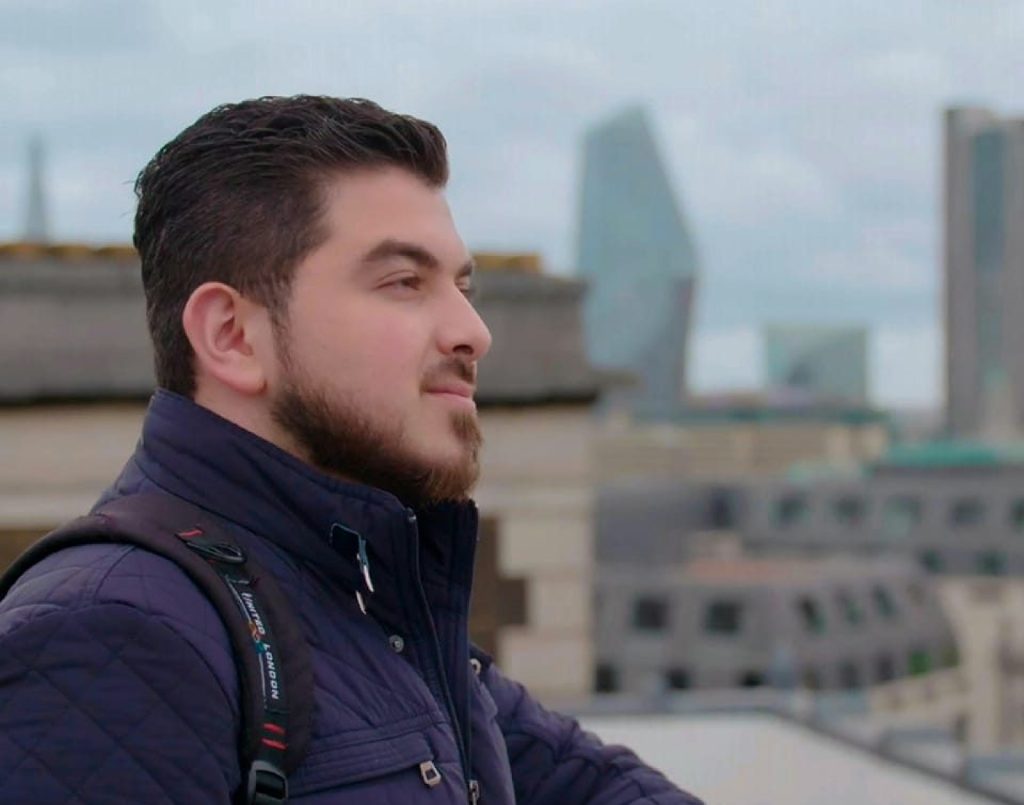Home » You are creating a story that they will tell for the rest of their lives

Abdulrahman is a member of the Waltham Forest Community Sponsorship Partnership group. Here, he tells us how his own experience of coming to the UK has informed and inspired his volunteering.
“I came through to the UK through resettlement with the council. Hannah from Sponsor Refugees called me and asked me to come to a meeting and do a presentation about how I found life in the UK. Iftakhar from the Waltham Forest Community Sponsorship Partnership was at the meeting. He asked, ‘Could you volunteer with us? Because you have the experience.’
From that moment, I learnt about resettlement through the Community Sponsorship scheme. Because at the beginning, I thought that all refugees come through the government and through the council. I didn’t know anything about the church or any community sponsorship to welcome refugees.
Unfortunately, my experience here in the first few months was very bad. I didn’t have a support worker. They just welcomed us from the airport and said, ‘This is your house.’ And then we didn’t see anyone for almost three months. It was a very, very difficult time for us. We didn’t know anything – the money, the value, how to pay the rent, how to pay the bills.
I don’t want anyone to feel the same way that I felt when I came to the UK. The reason that I volunteered is to help families not to have same problems.
Volunteering is not just supporting a family to start a new life – it’s building a new life for a family. It’s a lot more than just ticking boxes and taking the family to the job centre and stuff like this. You are responsible for much more: for creating a good memory to fight their bad memory, and actually create a story for them that they will tell for the rest of their lives – not only them but their children as well.
So it’s unconditional support. However, you do it just because of the humanity. You are not waiting for anything. You are just doing it because you believe that everyone has the right to receive.
I’m from Syria and the family I support are Syrian. So I know about the culture. Before they arrived, I know how we would like to design their house, what colours, what furniture we should buy, stuff like this that will make family life much, much easier. I know about bringing Syrian food – not just any kind of food – so that the family would find something to eat when they are here.
Because I am Syrian, the group could study me before the family arrived. They could understand the culture and then when the family arrived, they would not be surprised by things. They would not need to ask questions like, ‘Why are they doing this?’ ‘Why are they asking for this?’
When the family arrives, they can see someone as an example. They see someone from their country who speaks the same language and dialect, has integrated, speaks English and now he’s helping others. I believe that will give them hope.”
Share
Give your opinion about our latest poll below or perhaps you’ve a great story we should be covering.
Read all news and insight from our initiatives
See coverage of Reset UK in the press and media
Find out how Community Sponsorship helps refugee families in need build a new life in the UK with confidence and dignity.
How do I sponsor a refugee family? How does the process work? Reset is here to support you every step of the way.
We’ve designed toolkits to make it easy for you if you’re involved as a lead sponsor or a local authority.
Wherever you are on the fulfilling and thrilling journey through Community Sponsorship, we have training courses, videos, articles and more, all designed to help your group and the family you support.
From drop-in sessions to UK-wide networking events, we bring together people and professionals involved in all stages of the Community Sponsorship journey.
Make a direct difference in the world by getting involved with your nearest Community Sponsorship group – or starting one up yourself!
Make an extraordinary difference to the lives of people who have lost everything by signing up to our (free) Landlords for Refugees register.
Not everyone can donate their time, so if you are choosing to donate money today instead or as well as, thank you. Your generosity is vital to the work we do support community-led welcome of refugees.
Help others by sharing your account. Why were you attracted to community-led welcome? What worked, what did you learn, what has the experience been like for you?
Reset empowers volunteers to welcome refugees into communities across the UK. Find out about us and the kinds of programmes we’ve been involved with.
Research, monitoring and evaluation are essential for making evidence-based decisions that will support Community Sponsorship to grow and flourish.
Sponsoring a refugee family is a significant responsibility. We advocate for Community Sponsors to ensure that they are properly supported throughout their journey.
Our advocacy focuses on representing the views of Community Sponsors to the Home Office to support them in implementing the necessary operational changes.
We also represent the views of Community Sponsors to other key stakeholders, including Local Authorities, international organisations, the wider resettlement field, housing providers and financial institutions. We also use our voice to campaign on policies affecting refugees. We are members of the Together With Refugees coalition, campaigning for a more humane approach to people seeking protection in the UK.